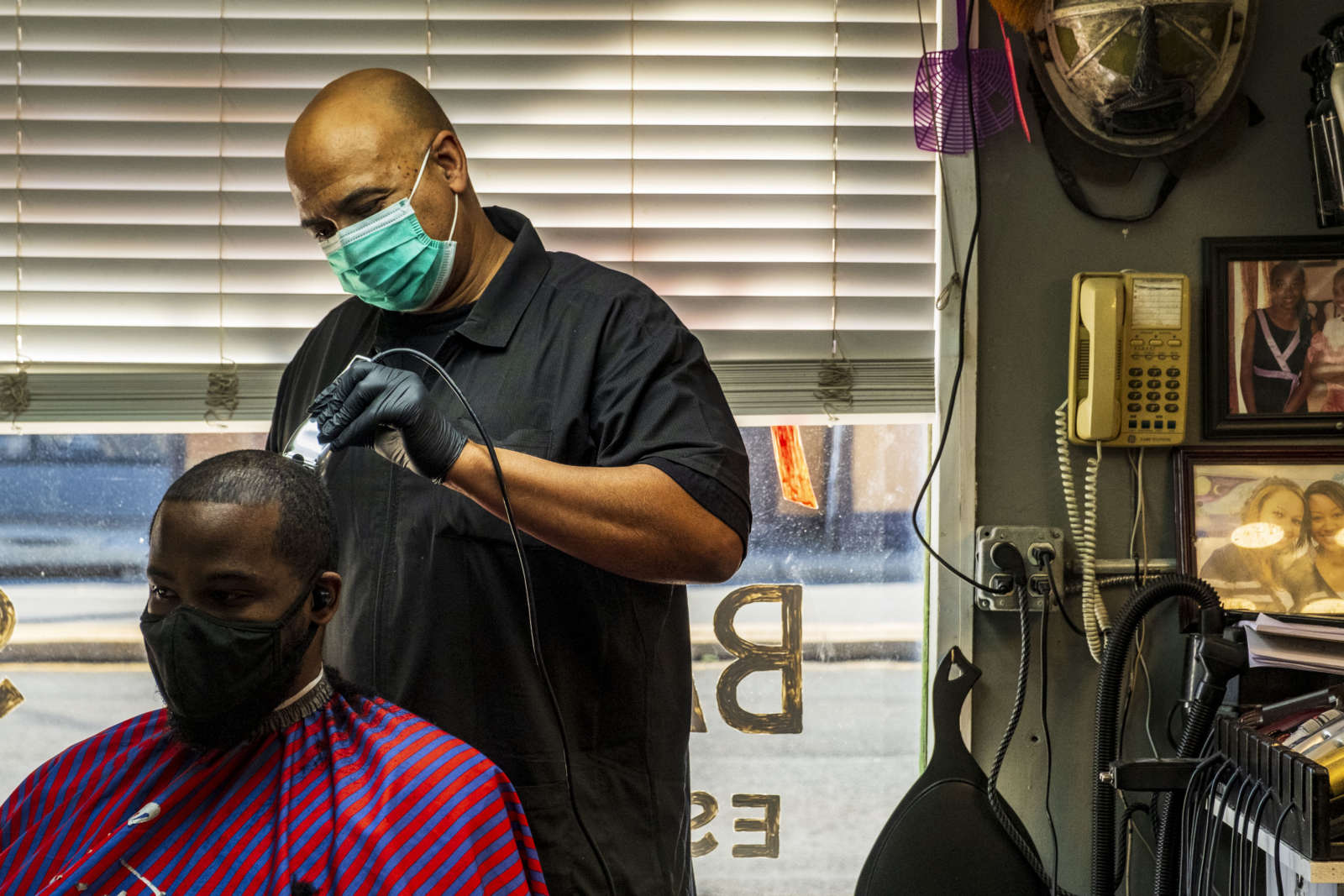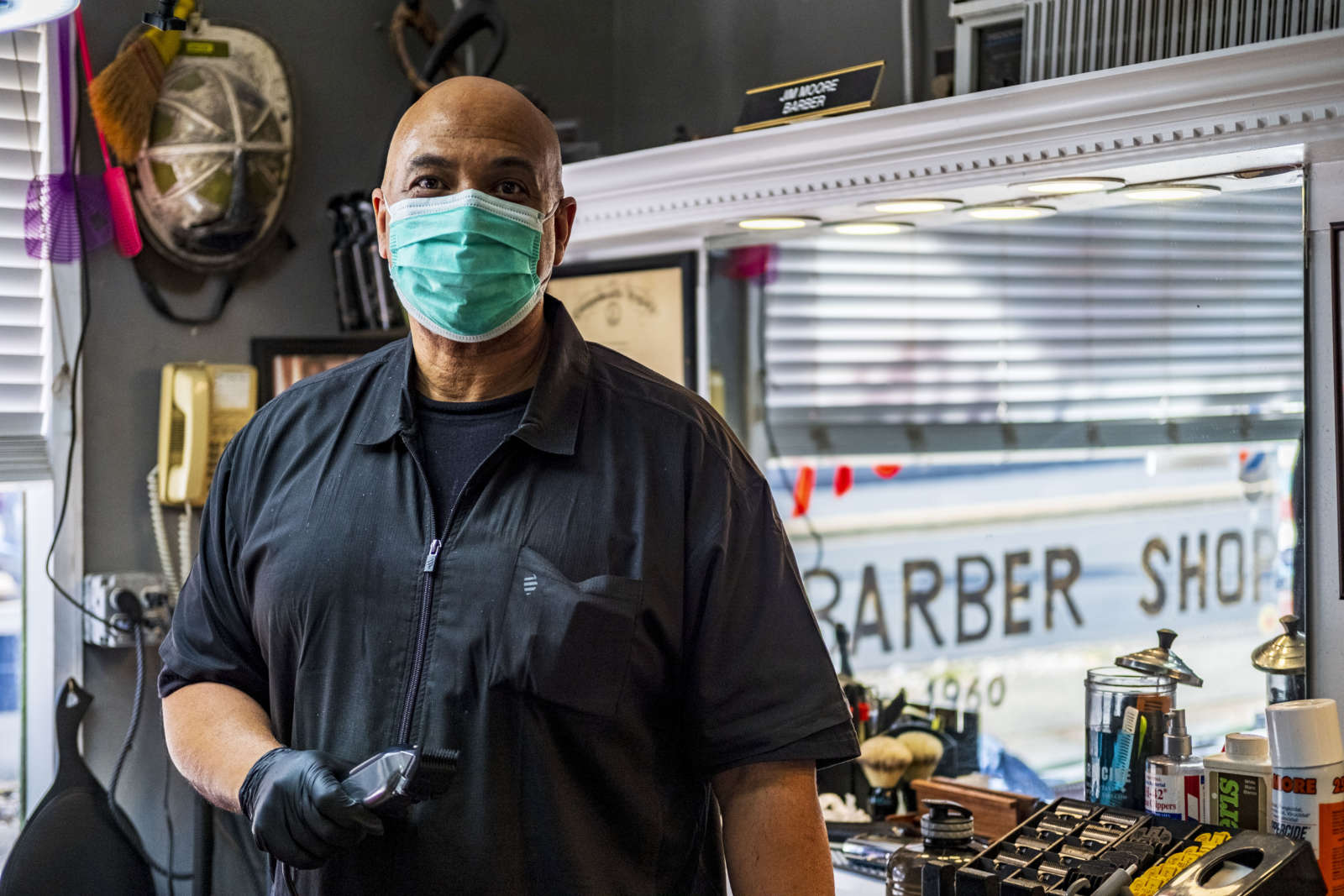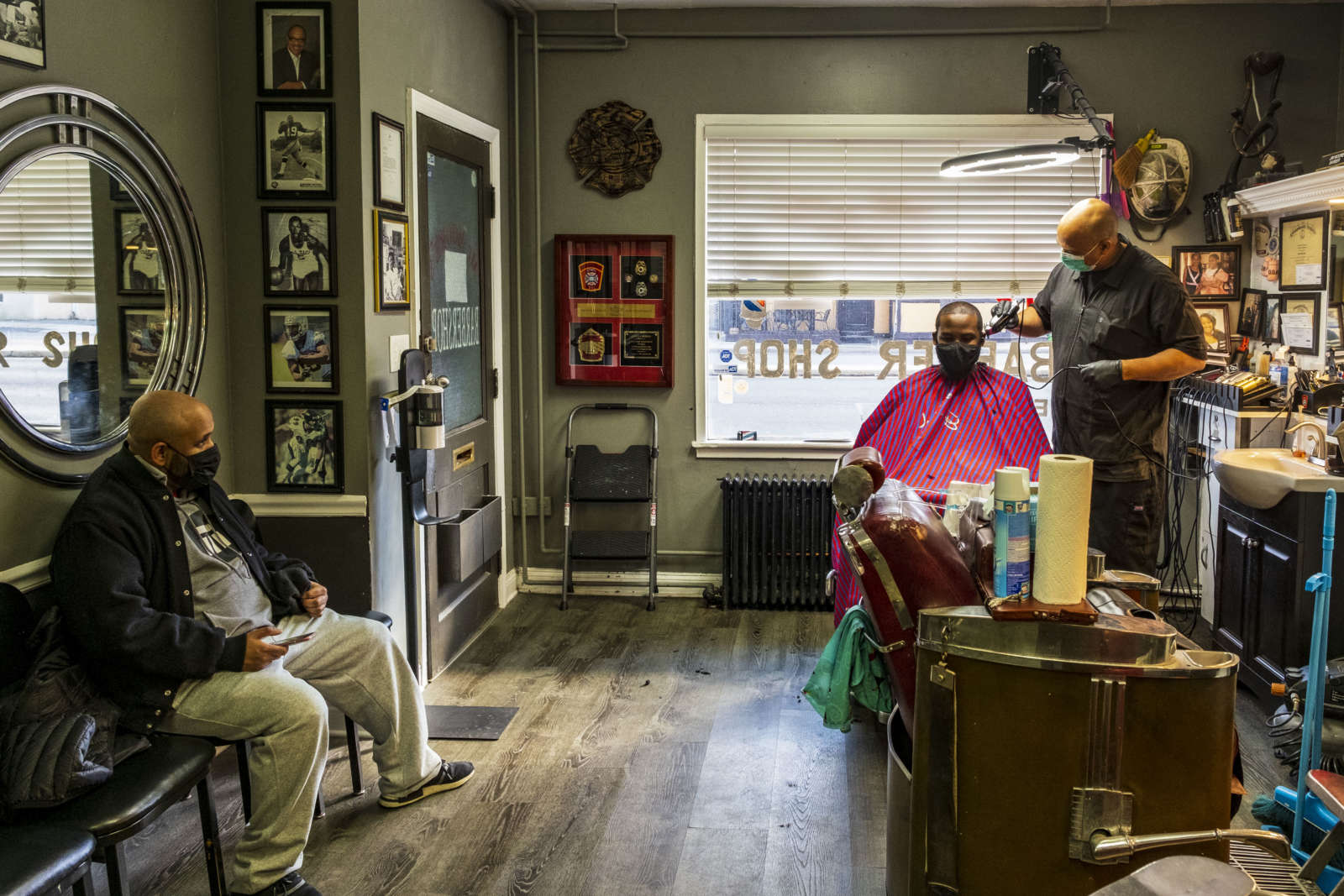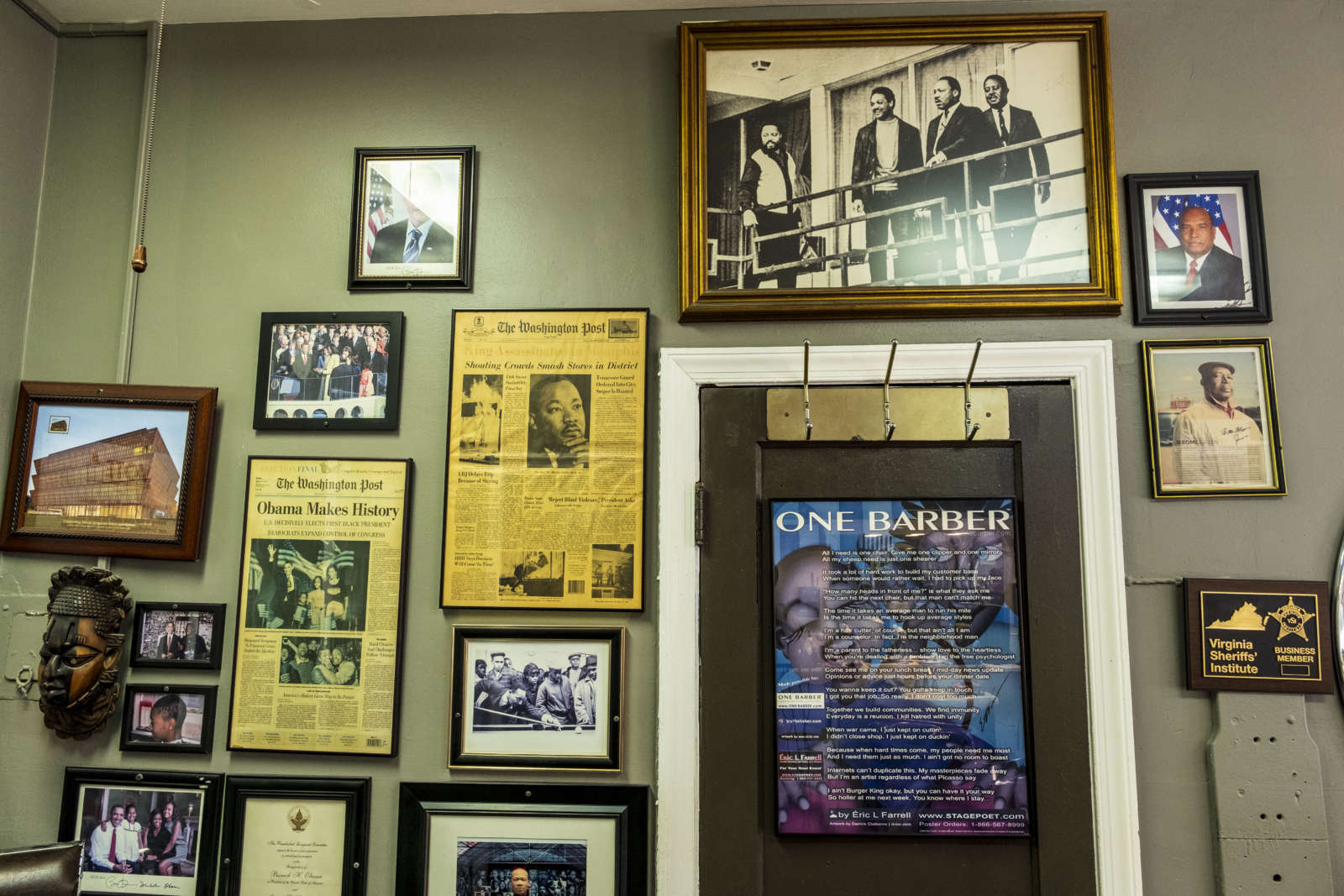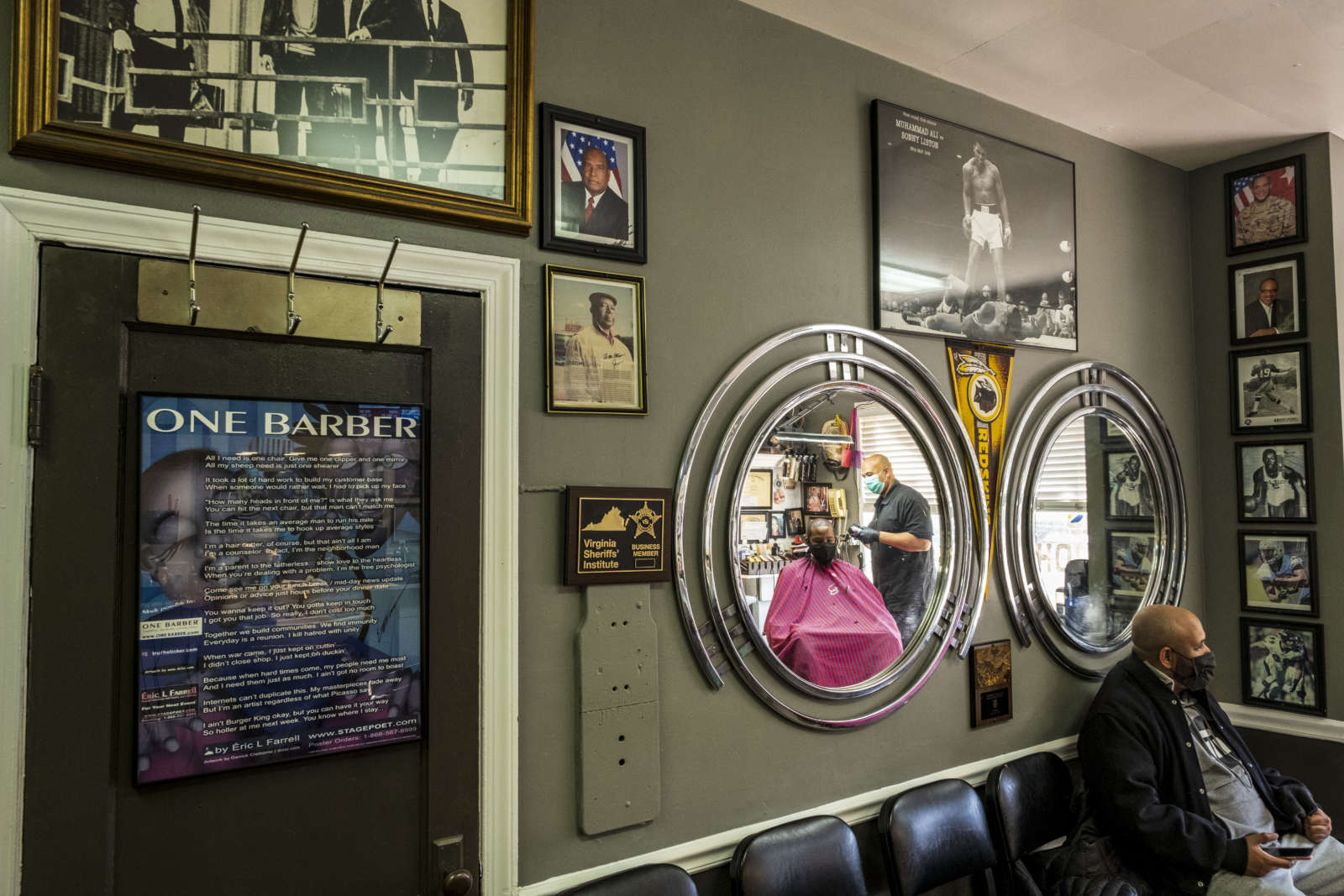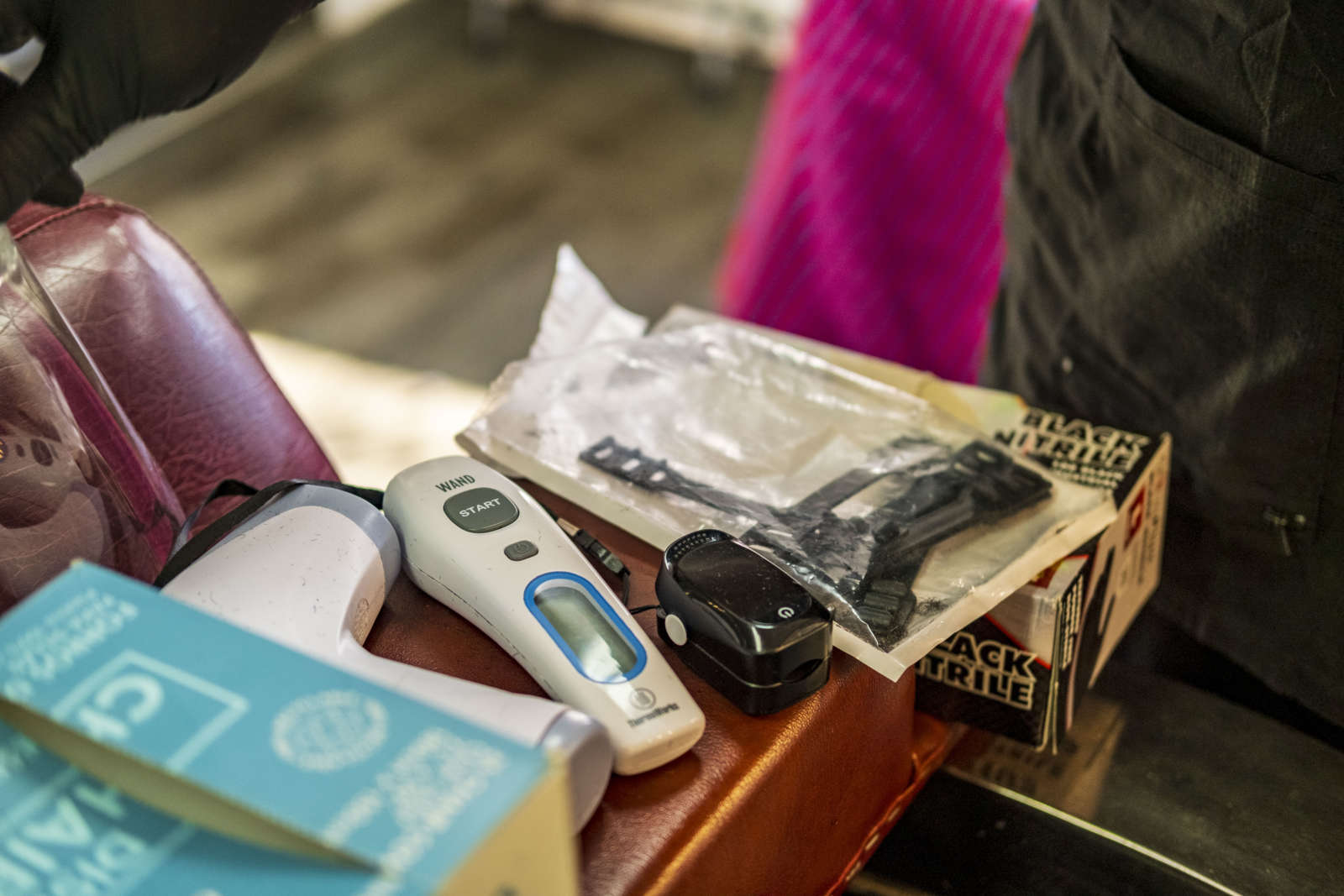For decades, Moore’s Barber Shop in Arlington has been known as a place where men go for friendships as much as good haircuts.
“The haircut is about a relationship, especially for men,” said James Moore, Jr., the second generation of Moore men to run the business at 4807 Lee Highway.
Community and conversations have drawn people in since James Moore, Sr. opened it in 1960 as Arlington’s first integrated barbershop. Its reputation as a community-serving local business has persisted. Last year, the younger Moore let a nonprofit distribute children’s books there.
While the coronavirus has stifled the sense of communion, his shop is now known for a different reason: COVID-19 accommodations.
Through word of mouth and social media, customers are coming in from Maryland and Washington, D.C. to check out his virus-resistant operations, he said.
“I had a barber shop from Delaware that called and asked me what my procedures and policies were, and who I was ordering supplies from,” he said. “They heard I’m doing it the way you’re supposed to do it.”
Once a hub for friendly debates while Moore moderates — in the event that tempers flare — Moore’s Barber Shop now only holds four people at a time: two barbers and two customers.
Everyone is masked, and the barbers are gloved. Like many businesses, Moore checks his customers’ temperatures, but he goes one step further and checks oxygen saturation levels.
Low oxygen levels can be an early indicator for COVID-19, he said, and Moore has turned away a few people with low levels and counseled them to go to the hospital.
“If you’re 94 or less, you’ve got a serious problem,” he said. “It’s documented that people say they feel great, but they have low oxygen saturation, and then [their body] crashes and they’re on a ventilator.”
Moore also accommodates customers who need extra precautions to feel safe. A select few feel more comfortable with just him in the room, so he opens at 5 or 6 a.m. to give them haircuts.
He uses a plastic-covered chair and a plastic cape, which are easier to clean, he said.
“The real extreme customers bring in their own clippers and cape,” he said. “Between those things, [business is] coming back strong.”
Moore attributes his near-medical-grade approach to his 32 years as an Arlington County firefighter, which gave him the knowledge and background needed to keep people safe.
Even with the precautions in place, however, Moore has still seen a drop in clientele. Since March, he said his numbers have dropped 25% to 35%. He attributes the loss to continued fear of going out, tight finances and wives who have taken over the task because customers are working from home.
“A haircut — even if I think it’s important — is not a necessity, if they work from home and their wife is cutting their hair,” he said.
What suffers the most is the group dynamic that was the hallmark of this barbershop. On Fridays and Saturdays, the shop was packed with “all types of personalities” and professions, from the humorous to the serious and the doctor to the construction worker, Moore said.
Smaller conversations still bubble up, and one last week turned to the 1918 Spanish Flu. Moore said they discussed government campaigns at the time to get all Americans, including those who resisted masks, to wear masks and follow other recommended precautions.
Once the pandemic was declared over, the U.S. roared back to life, he said.
“That’s why they called it the Roaring ’20s,” Moore said. “They partied as a result of being locked away for two years.”
He predicted that the same human urge to be social will reunite old friends once vaccines are more widely available.
“We are a communal hub, a spot for what’s going on in the neighborhoods,” he said. “That will definitely come back, and we’re looking forward to it.”


